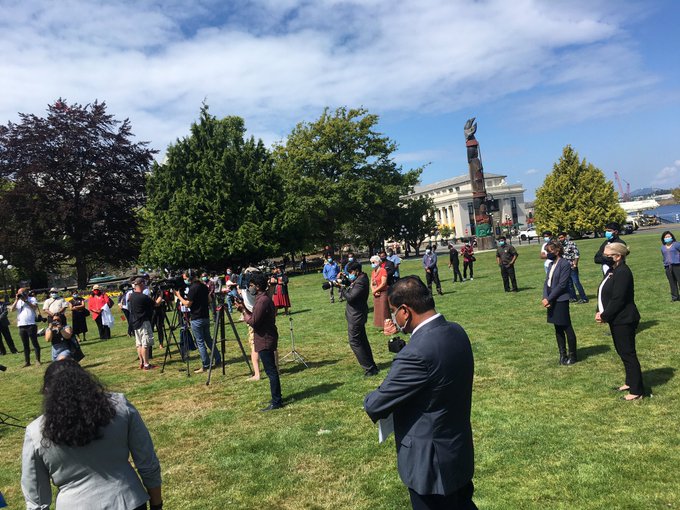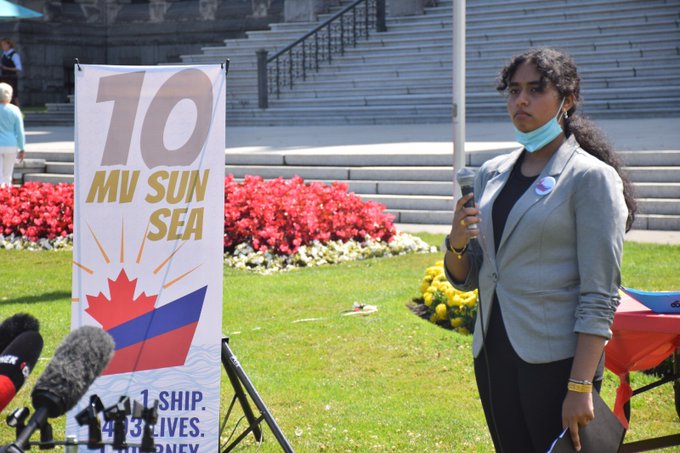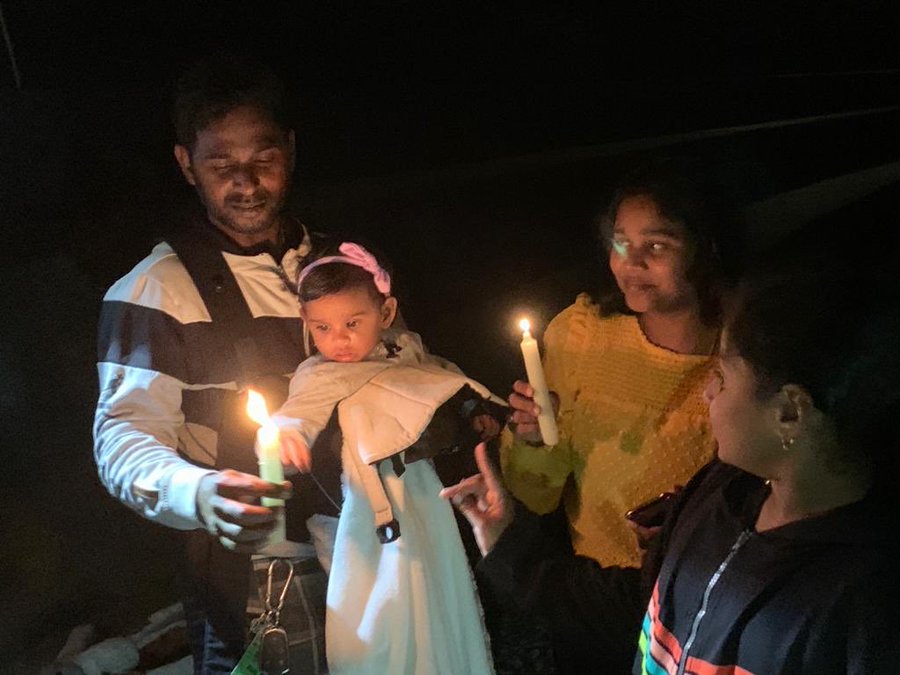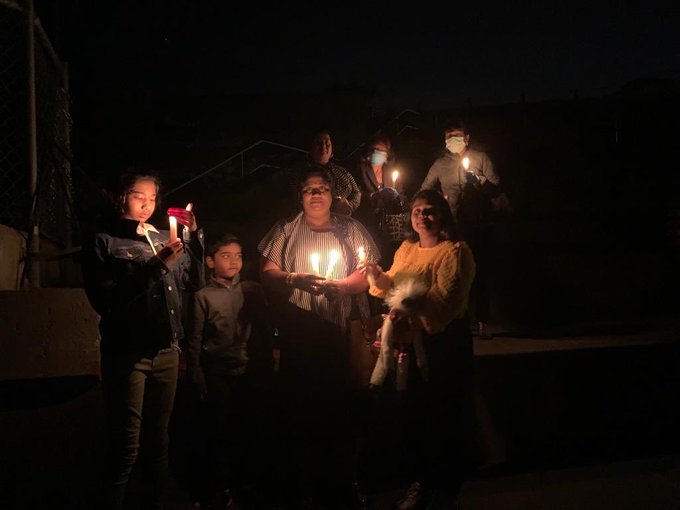Last month marked 10 years since the MV Sun Sea docked in Esquimalt, B.C., carrying 380 men, 63 women and 49 Tamil children fleeing a genocide perpetrated against them by the Sri Lankan government. However, a decade on from the arrival of the boat, many of the refugees still face a precarious situation in Canada.
An event was held in Victoria to mark its anniversary outside the legislature last month, with dozens of Tamils gathered. Speeches were given by those who came on the boat and their children, with a candle lit vigil in the evening.


The cargo ship was intercepted off the coast of Victoria by the Canadian navy on August 13th, 2010, after leaving Thailand six weeks earlier. A 37-year-old man died on the voyage before reaching the West Coast.
However, on arrival, the Canadian press began a campaign of fear-mongering, linking the refugees to the Tamil Tigers and the federal government looked to prosecute those who had arrived. For months the asylum seekers, which included young babies, were held in detention. Several were immediately deported.
“They should have welcomed us, and that’s why we had our gathering in Victoria,” says Prianavan Thangavel, who was 19-years-old when he arrived on the MV Sun Sea. He is one of approximately 100 of the arrivals still awaiting permanent residency in Canada, having just been granted refugee status two years ago.
Then federal Safety Minister Vic Toews called some of the passengers “suspected human smugglers and terrorists” and warned that it was “imperative that we prevent supporters and members of a criminal or terrorist organization from abusing Canada’s refugee system.”
The Conservative government at the time was also eager to prosecute anyone they suspected were human smugglers. Kunarobinson Christhurajah spent more than six years in immigration detention and went through two trials, accused of human smuggling. He had arrived on the boat with his wife, who was pregnant at the time.
“I was born in war,” he told the St Catharine’s Standard. “Tamil people need the rights. That’s the rights they fight for.”
“I don’t ask anybody (for) money,” he says. “Think about it. You coming from a conflict war. You see people dying, your friends die. You think you can collect your friends’ money? You know they’re struggling to eat, to live.”

After his original trial was declared a mistrial, in 2017 he was convicted and sentenced to four years imprisonment. However, incarceration was waived as by that point Christhurajah had already spent 7 years imprisoned awaiting trial. He appealed his conviction and last year B.C.’s top court agreed to order a new trial. Federal prosecutors have since asked for a stay in proceedings.
His daughter Bynthavy told the crowd that gathered of how she could only see her father “from behind a glass door a few times”.
“I was six years old when my father was released and granted the opportunity for the first time to hug, kiss and carry me,” she said. “That day changed my life and now I live happily with my father, mother and sister like others.”
“Beyond all the hardships of the journey on the sea and my father’s imprisonment, we are now able to live happy lives thanks to this country and the community of fellow Tamil people.”
Many of those who arrived though are still suffering from serious legal and mental health issues said Liberal MP Gary Anandasangaree, who was present at the event last month.
“They’ve also had to overcome the labelling — the initial onslaught of, ‘These are undesirables, criminals, terrorists,’” he added. “It’s a permanent scar on who they are as individuals.” “They have been separated for 10 years. Many children growing up, not knowing their father, their mother. And it’s just a heart-wrenching experience.”
“Those who’ve been given normalized status are thriving,” he said. “Those in relative limbo or uncertainty still have a fair bit of baggage to overcome.”
Thangavel remains one of those still suffering the effects of Canada’s decision to not grant permanent residency. “I can’t get any proper job,” he says. “An employer doesn’t want to hire someone who might have to leave after one or two years.”
“I am happy that I’m here. I finished my high school and I graduated from college, but I can’t move on until I get my permanent residency.”
Others have also suffered, including Kirushna Kumar Kanagaratnam’s who was murdered by Toronto serial killer Bruce McArthur.
“The sad part there is that he basically did not have status and was very frustrated. And he was just disconnected from everyone for years. Nobody knew where he was until his body was found,” Anandasangaree says.
“When the migrants arrived they were vilified. The opinion polls were negative. In the current context, I like to think we learned our lessons and we are much better than what we were before.”
See more from Victoria News here, City News 1130 here, the St Catharine’s Standard here and the Globe and Mail here.

Photographs courtesy of Gary Anandasangaree.
